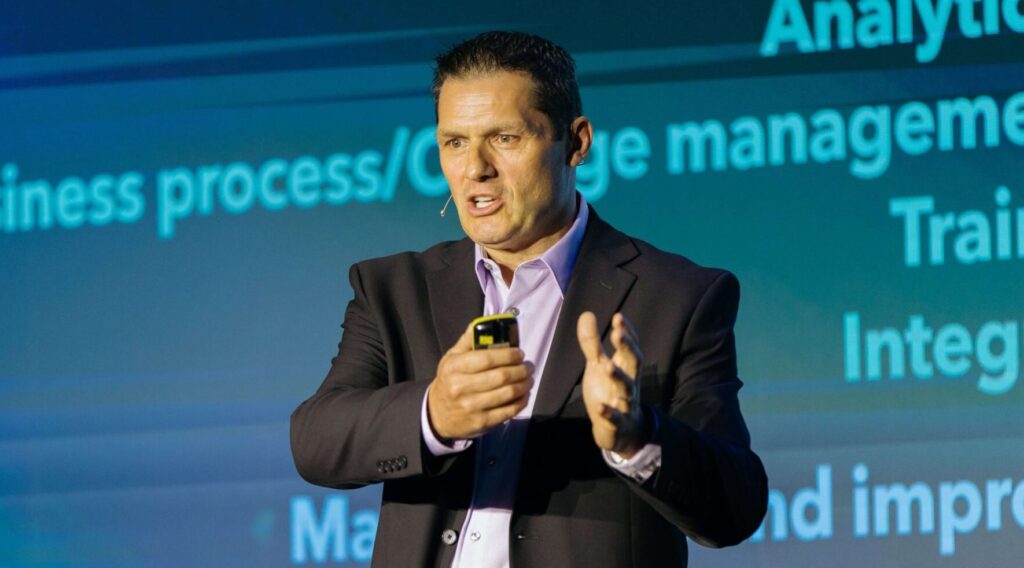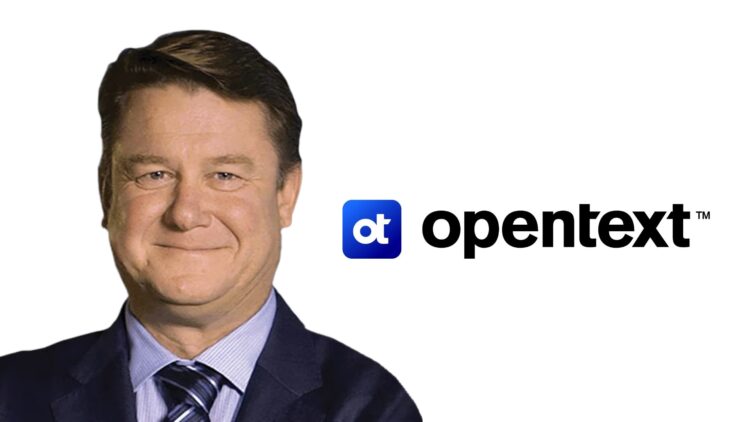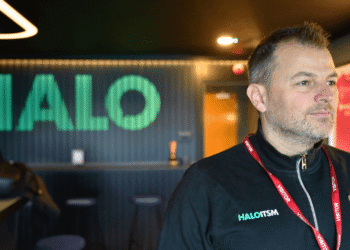OpenText yesterday announced it had parted ways with CEO Mark Barrenechea after 13 years.
The $5bn-revenue software ‘portfolio company’ has spent the last decade snapping up a wide array of enterprise and SMB vendors including Carbonite in 2019 (which had not long before acquired Webroot) and Micro Focus in 2023.
But in yesterday’s announcement, it hinted at the possibility of divestments as it signalled its intent to focus on its core information management for AI business.
Here are five things partners need to know…
1. Search for successor has started
OpenText said it had parted ways with Barrenechea – who has led the business since 2012 – “effective immediately”.
The Canadian outfit has moved to appoint 25-year company veteran James McGourlay as its temporary leader as it seeks Barrenechea’s permanent successor.
“Now is the right time for this leadership transition, and James is the ideal leader to serve as Interim CEO. I look forward to working with him and our executive leadership team to ensure that OpenText continues to advance its strategy,” stated P. Thomas Jenkins, who has been made Executive Chair to support the transition period.
2. Its revenues are in reverse
Barrenechea’s ouster came four days after OpenText reported a 10.4% dip in annual revenues.
Its $5.17bn annual haul was a 3% drop when adjusted for the sale of its Application Modernisation and Connectivity business.
Styling itself as a “portfolio company”, OpenText made 17 acquisitions between 2015 and 2023 (see here). Many, including not only Carbonite/Webroot but also Guidance Software (acquired in 2017), Zix (2021) and Bricata (2021) had a cybersecurity bent.

“Dropping revenue by double-digits in a cybersecurity market that is growing by double-digits is the core reason for the change,” Canalys Chief Analyst Jay McBain told IT Channel Oxygen.
OpenText is in danger of losing out in an era that is seeing the emergence of “true cyber platform winners” such as Palo Alto Networks, Google, Cisco (following their respective acquisitions of CyberArk, Wiz and Splunk), as well as Microsoft and CrowdStrike, McBain said.
“Those enterprise cybersecurity assets and customer installed base OpenText acquired are the most under pressure from the cyber platform winners,” fellow Canalys analyst Matthew Ball added.
3. Non-core assets in play
What could the leadership change mean for OpenText’s strategy?
Jenkins hinted that divestments – as well as acquisitions – could now be on the menu.
“After a thorough review of the business and its performance, and as we look ahead to the company’s future, the board believes there is an opportunity to enhance shareholder value by growing revenue in our core information management for AI business and redeploying capital from the non-core assets,” he stated.
Somewhat enigmatically, Jenkins added that OpenText is continuing to work with its financial advisors to “explore portfolio-shaping opportunities” to boost its core business.
Keith Kirkpatrick, Research Director at analyst Futurum Group, viewed it as a positive move.
“The change signals that the company is serious about quickly simplifying its portfolio of products and services to focus on higher-margin products tied to AI and cloud, such as its Titanium X platform,” he said.
“OpenText has acquired a large number of businesses over the years, and a reassessment of what technologies and businesses are core to becoming an AI-first company focused on enterprise customers is in order.”
4. Cost-cutting actions accelerate
In a blog post in July 2024, Barrenechea outlined OpenText’s intent to lay off 1,200 staff as part of a business optimisation plan.
The move, which would also see it reinvest in 800 new roles, was designed to trim $150m from its annual expenses.
Following reports in May that OpenText had resolved to cut a further 1,600 roles, Barrenechea acknowledged on last week’s earnings call that its business optimisation plan had been “expanded” in the vendor’s most recent quarter.
It is now expected to yield total annualised savings of around $490m-$550m, he said.
“With the company’s business optimisation plan well underway, and given our position at the forefront of information management for AI, I am confident that we will continue to innovate across these areas and deliver solutions that power our customers’ businesses,” new interim CEO McGourlay stated yesterday.
5. A new channel boss in town
The change at the top comes five months after OpenText moved to bolster its channel strategy by enlisting former Kaseya and Datto exec Mike DePalma as its VP of Business Development.
“They need to support [DePalma] and the team to reinvigorate that old Webroot model of community-first channel engagement in SMB,” Canalys’ McBain said.
“Enterprise will be more difficult as they just pulled all of the acquisitions under the OpenText name and that rebranding ‘platform’ play will take time to take hold through the channel/sales teams.”














